Counterfeit goods flood from hospital beds to dinner tables
Recently, many cases related to fake drugs and foods have been discovered nationwide, causing great concern among the public.
In early April, the Ministry of Public Security discovered a fake milk ring involving 573 brands of powdered milk for people with diabetes, kidney failure, premature babies, and pregnant women... Many products had actual quality that was only less than 70% of the declared quality.
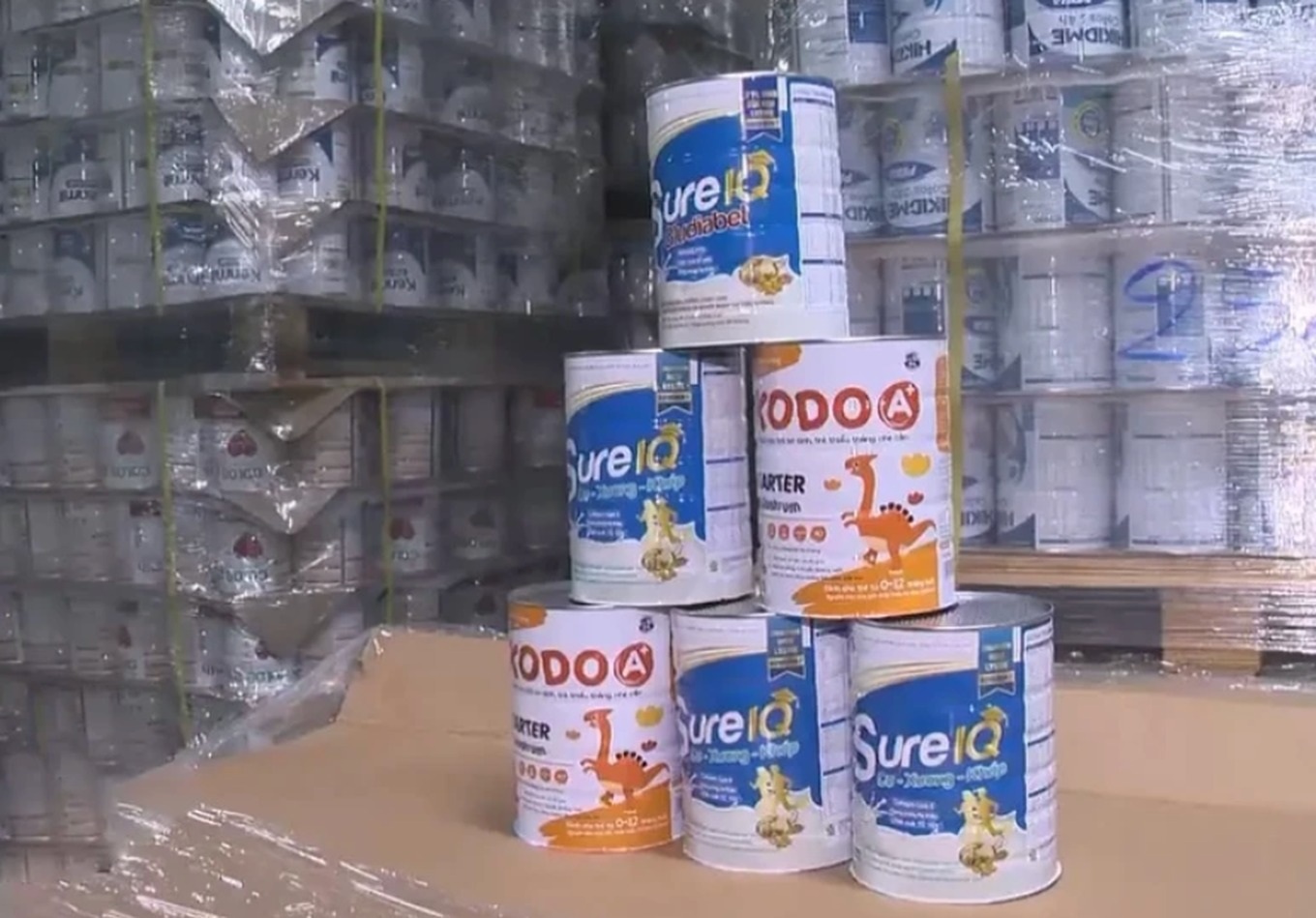
The case of nearly 600 brands in the fake milk ring shocked public opinion (Photo: VTV).
Investigation results show that all of these products were produced and distributed by two companies, Rance Pharma and Hacofood Group. By using false advertising tricks and playing on patients' psychology, these businesses have defrauded consumers and appropriated nearly 500 billion VND from August 2021 to present.
The upsetting story about fake milk had not yet subsided when on April 16, in Thanh Hoa, the provincial police dismantled a large-scale fake medicine trafficking ring with a total volume of up to 10 tons, illegally profiting nearly 200 billion VND.

Police force checks counterfeit drugs (Photo: Thanh Hoa Police).
Continuing the series of incidents, on April 25, in Hanoi, Herbitech Technology Company Limited was discovered to be producing fake health protection foods for children. Two products were identified as fake and distributed on the market including "BABY SHARK" and "Medi Kid Calcium K2".
Immediately afterwards, on April 26, the Department of Investigation Police on Corruption, Economic Crimes, and Smuggling (Ministry of Public Security) initiated a particularly large-scale case involving more than 100 tons of fake functional foods. The subjects set up many companies to conceal their activities, using raw materials mainly from China but labeling them as imported goods from the US and Europe.
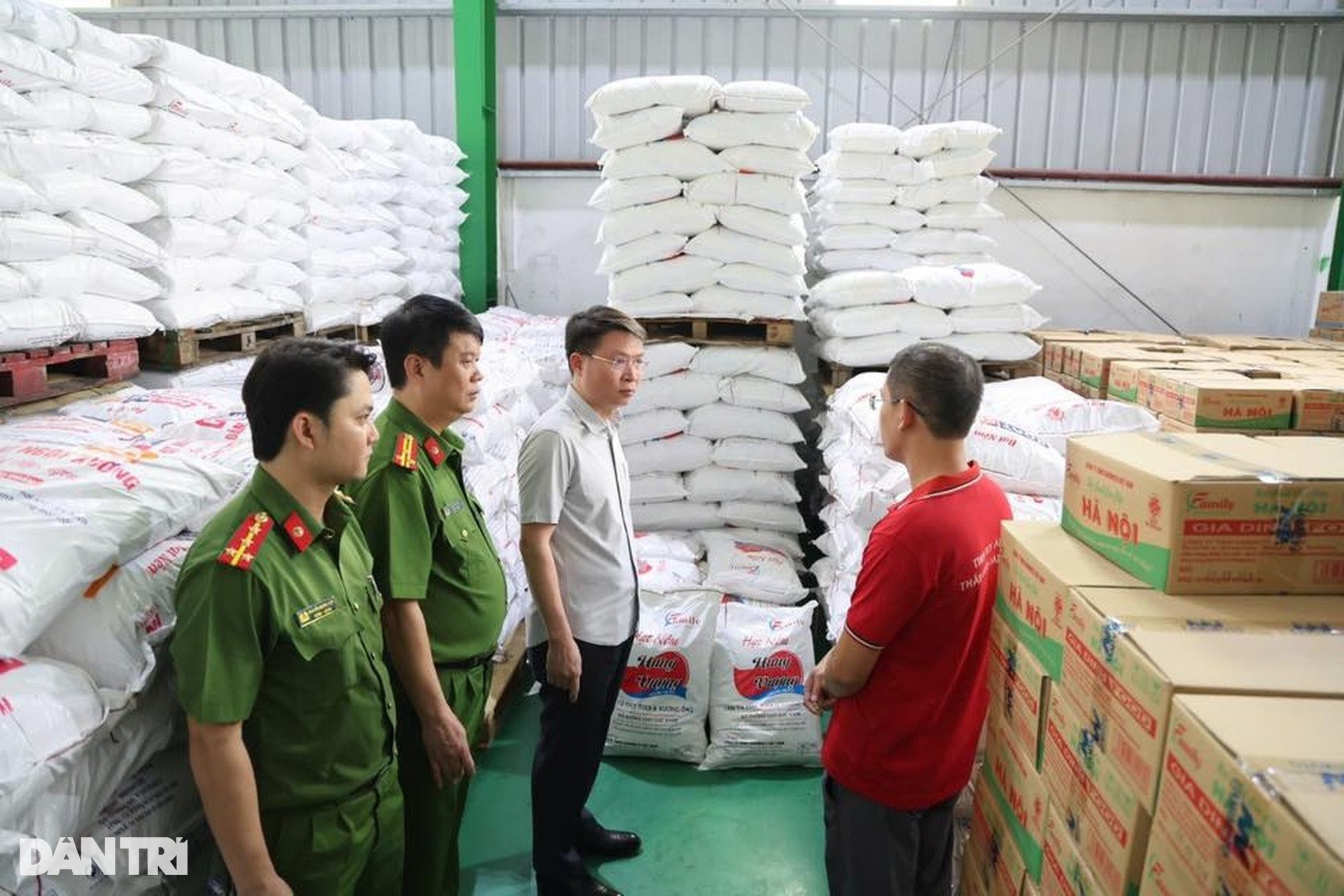
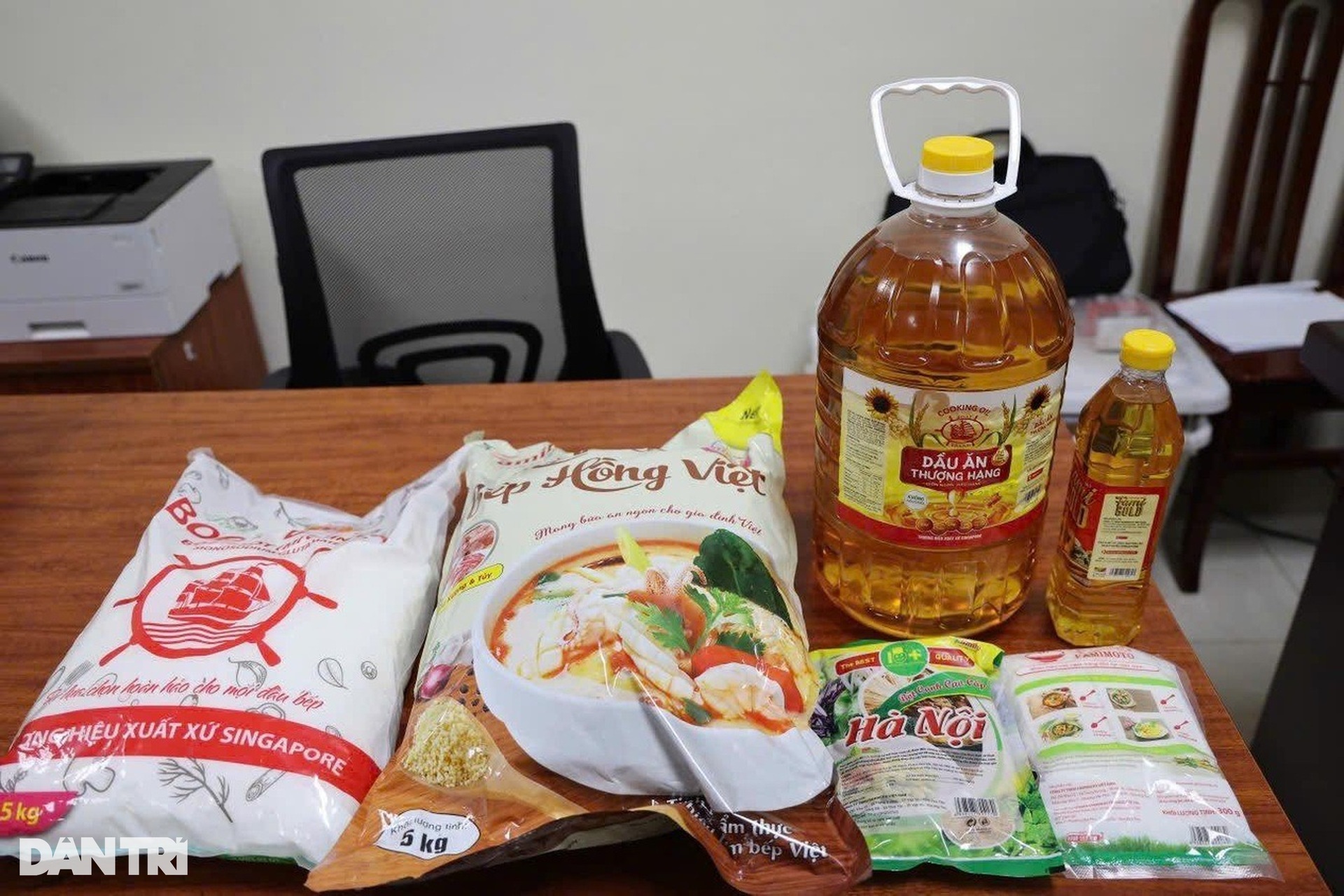
Not yet recovered from the shock, most recently, in Phu Tho, the authorities discovered a large warehouse of fake food managed by Famimoto Vietnam Co., Ltd. The seized items included more than 71,000 liters of cooking oil, 40 tons of MSG, 22 tons of seasoning powder, 9 tons of broth powder and nearly 84 tons of additives, along with more than 1.5 million packaging and plastic cans.
Will people who buy fake medicine and milk get compensation?
After the Ministry of Public Security dismantled a large-scale fake milk production and trading ring, a video clip was circulated on social media showing people gathering at a milk store in Phu Tho to return the products and demand their money back. They claimed that the products they had purchased were on the list of fake products recently announced by the authorities.
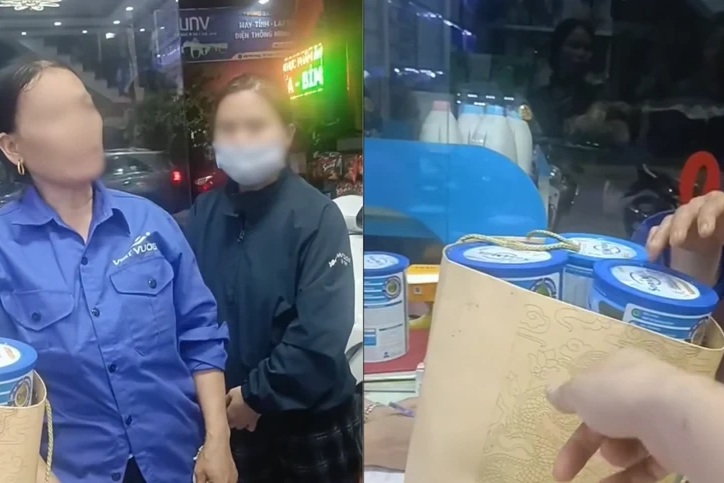
According to the video posted on social media, many people in Phu Tho brought milk they bought from the dealer to return and demand a refund (Photo: Screenshot).
Many people could not hide their anger and anxiety when they discovered that they and their families, including pregnant women and young children, had used the suspected fake milk. Some people said they had experienced unusual signs during use but did not suspect anything until official information was released.
According to the video, although people proactively brought the product to return and requested a refund, the dealer refused to accept it, leading to an argument.
So the question is, when people buy fake milk or more broadly, fake food/functional food/medicine products like in the above cases, whose responsibility is it?
Regarding this issue, lawyer Luu Tien Dung, Chief of Office of La Défense Law Firm, said: "Depending on each specific case, the responsibility between the manufacturer, distributor and retailer will be determined differently. But in essence, for counterfeit goods to be able to circulate on the market, it must start at the production stage."
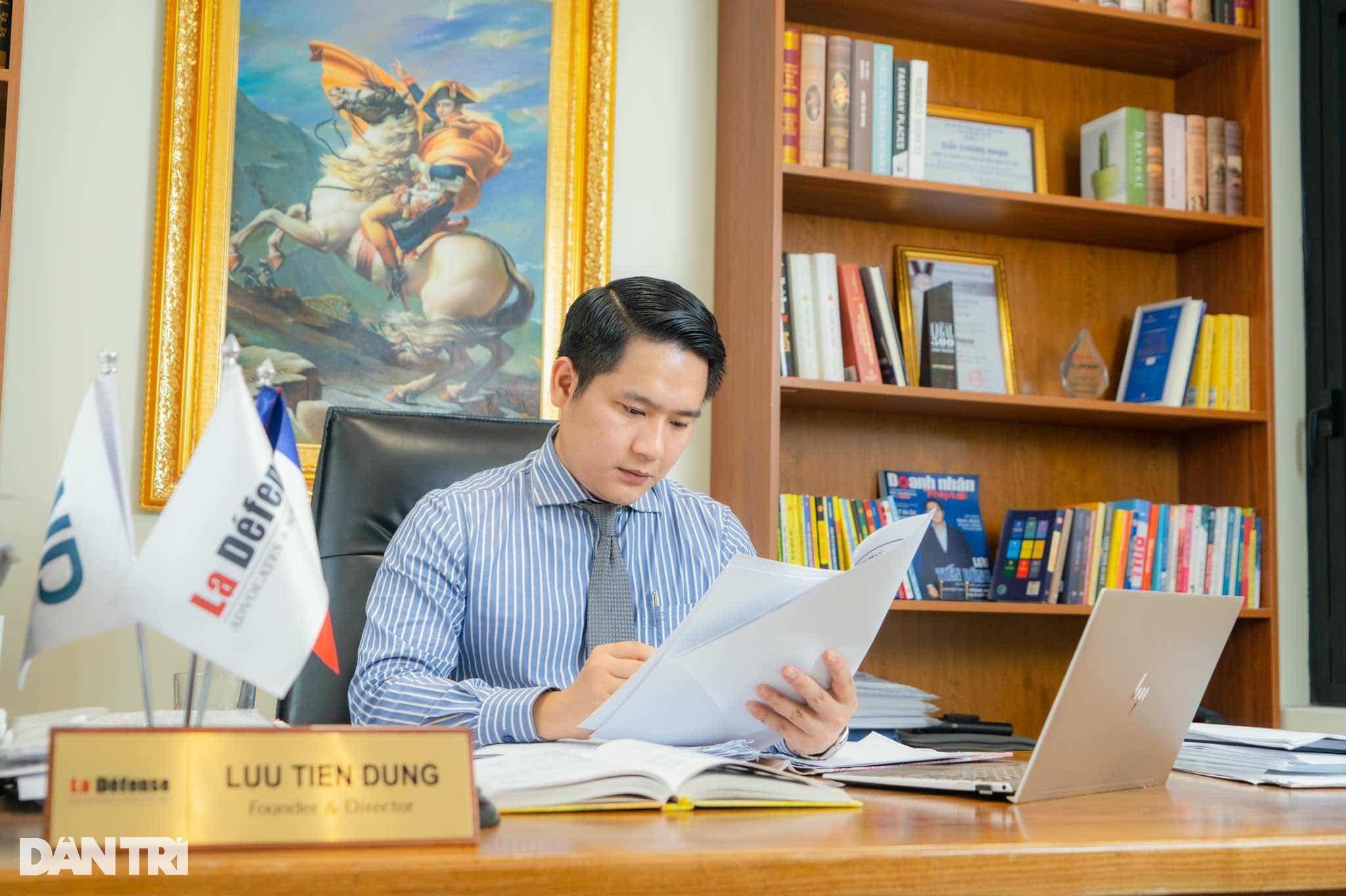
Lawyer Luu Tien Dung, Chief of Office of La Defense Law Firm (Photo: Contributor).
According to lawyer Dung, many manufacturers have arbitrarily changed the quantity of the main ingredients in the product, reducing it below 70% compared to the declared standard, causing the product to no longer match the information printed on the packaging. This is an act of counterfeiting goods right from the manufacturing enterprise itself for the purpose of profiteering.
"However, if the distributor or agent knows that the product is fake but continues to distribute it, they must also bear the same responsibility as the manufacturer. Because that is an act of assisting in the production of counterfeit goods," emphasized lawyer Dung.
In case the agent cannot be identified as knowing the origin of the goods, the return or refund cannot be imposed by law but is only a civil agreement.
From a medical perspective, according to Master, Doctor Doan Du Manh, a member of the Vietnam Vascular Disease Association, "Using fake drugs and food is a dangerous behavior, no different than gambling with your own life."

MSc. Dr. Doan Du Manh, member of Vietnam Vascular Diseases Association (Photo: Contributor).
Dr. Manh cited one of the most serious risks when using counterfeit drugs as the real symptoms are masked, making the patient mistakenly believe that the treatment is effective. Meanwhile, the disease continues to progress silently, leading to serious complications that are not detected in time.
"The patient thinks he is being treated, but in fact there is no active ingredient. During that time, the damage to the tissue, muscles, and joints continues to silently increase. By the time he returns to the hospital, the disease has progressed to a late stage, making it very difficult to intervene," Dr. Manh shared.
Dr. Mai Quang Huynh Mai, Deputy Head of the Department of Nutrition, Children's Hospital 2 (HCMC) emphasized that the danger of fake milk lies not only in the packaging but also in the content inside the product, namely the nutritional quality.
"When this product is consumed by vulnerable populations such as premature babies; pregnant women; the elderly or chronically ill, the risk of health effects is very high, and can even cause permanent damage if used for a long time," said Dr. Mai.
According to Dr. Mai, the most worrying thing about fake milk is that this product may not cause acute symptoms, making many users think that "it's okay". However, internally, a prolonged lack of micronutrients can affect the immune, nervous, and metabolic systems.
"Children can suffer from chronic anemia, slow growth, behavioral disorders, and poor learning. Pregnant women are prone to fatigue, exhaustion, premature birth, fetal malformations, and even miscarriage. Patients with underlying medical conditions are prone to loss of control and sudden complications," Dr. Mai listed.
Lawyer Dung affirmed that, from a legal perspective, consumers still have the right to request a refund, product exchange or compensation if they can prove damage.
"People will be compensated for their health if there is a basis to believe that fake milk is the cause of diseases requiring treatment or directly causes injuries that can be assessed.
In addition, buyers of fake milk can also claim compensation for mental damage if they can prove that their lives or those of their relatives have been seriously affected by the purchase and use of fake milk. However, in reality, it is difficult to quantify the specific number," said lawyer Dung.
With the case being directly handled by the Ministry of Public Security's Investigation Police Agency, consumers can gather evidence and submit a request for civil compensation within the framework of the criminal case, instead of filing an independent lawsuit under civil procedures.
Avoid the "look over there" situation
In fact, the control and supervision of the quality of food/drug products circulating on the market is under the authority of many different agencies.
However, in many cases, it is not easy to determine exactly which agency has been slow to let counterfeit goods into the market.

A fake milk line called Cilonmum is widely advertised on platforms (Photo: Screenshot).
The reason is not only because of the fragmentation of authority, but also because the methods of counterfeit producers and distributors are increasingly sophisticated. They often change their products and methods, and there are also many advertising images and mass media to deceive the authorities and consumers.
Recently, thanks to the active involvement of the police force and timely direction from the Government, the production and distribution lines of counterfeit goods, not only food but also fake medicine, have been discovered and exposed.
Lawyer Luu Tien Dung said that the current Law on Consumer Protection No. 19/2023/QH15 has made many improvements, overcoming many previous legal loopholes. However, he emphasized that the bottleneck lies in the implementation stage.
"The dissemination, application and implementation of the law's provisions are still not really effective. When authority is assigned to many agencies, it is easy for the situation to "look at each other" or "step on each other's toes", so no one has really taken action," said lawyer Dung.
According to him, to effectively protect consumers, the first thing is to clearly identify a focal agency with primary responsibility for managing and handling violations. When authority is still dispersed and overlapped among many units, the production and circulation of counterfeit goods will continue to persist, making the detection and handling of counterfeit goods continue to be ineffective.
"We cannot rely on 'cleaning up the consequences'. To protect consumer rights, the legal and management systems must be one step ahead to proactively prevent damage instead of just dealing with it after it has occurred," said lawyer Dung.
Source: https://dantri.com.vn/suc-khoe/hang-gia-do-bo-tu-giuong-benh-den-mam-com-20250429090510269.htm


![[Photo] Ho Chi Minh City: People are willing to stay up all night to watch the parade](https://vphoto.vietnam.vn/thumb/1200x675/vietnam/resource/IMAGE/2025/4/29/cf71fdfd4d814022ac35377a7f34dfd1)
![[Photo] Prime Minister Pham Minh Chinh meets to prepare for negotiations with the United States](https://vphoto.vietnam.vn/thumb/1200x675/vietnam/resource/IMAGE/2025/4/29/76e3106b9a114f37a2905bc41df55f48)
![[Photo] Nghe An: Bustling atmosphere celebrating the 50th anniversary of Southern Liberation and National Reunification Day](https://vphoto.vietnam.vn/thumb/1200x675/vietnam/resource/IMAGE/2025/4/29/64f2981da7bb4b0eb1940aa64034e6a7)

![[Photo] Hanoi is brightly decorated to celebrate the 50th anniversary of National Reunification Day](https://vphoto.vietnam.vn/thumb/1200x675/vietnam/resource/IMAGE/2025/4/29/ad75eff9e4e14ac2af4e6636843a6b53)
![[Photo] General Secretary attends special art program "Spring of Unification"](https://vphoto.vietnam.vn/thumb/1200x675/vietnam/resource/IMAGE/2025/4/29/e90c8902ae5c4958b79e26b20700a980)
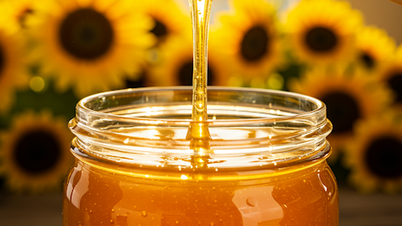
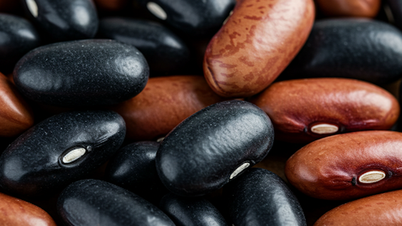

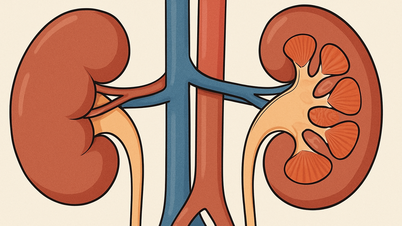

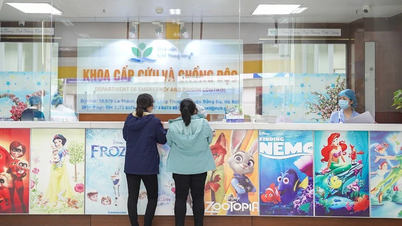










![[Photo] People choose places to watch the parade from noon on April 29](https://vphoto.vietnam.vn/thumb/1200x675/vietnam/resource/IMAGE/2025/4/29/3f7525d7a7154d839ff9154db2ecbb1b)







































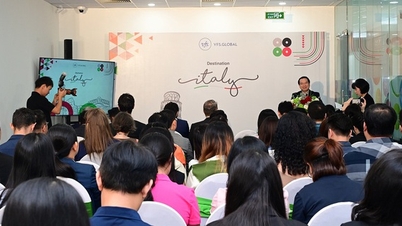

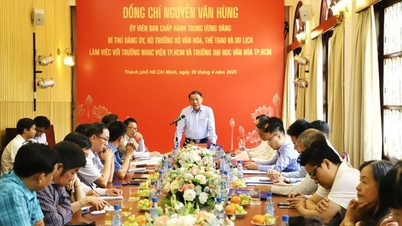







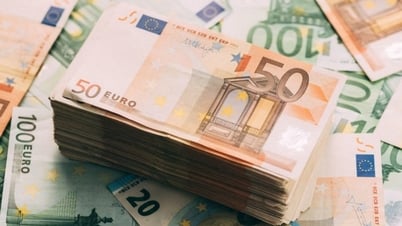















Comment (0)